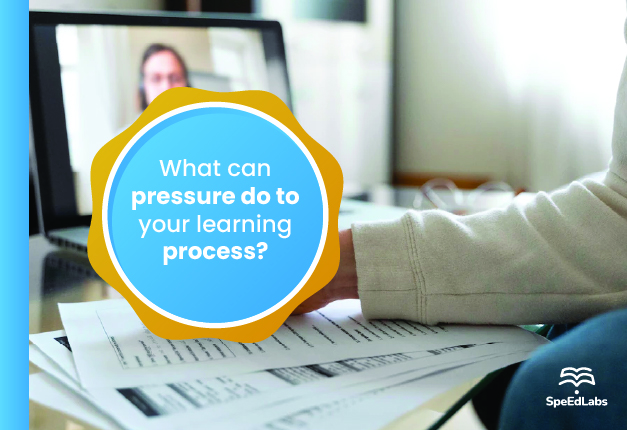Dealing with stress and pressure seems like a common phenomenon in the lives of everybody including students. Because of numerous internal and external expectations placed on them, a student’s academic life has become stressful. Due to the numerous changes they experience on a personal and social level, teenagers are particularly susceptible to academic stress. Since academic stress has both causes and effects, it is crucial to comprehend these to create intervention strategies that are both effective and efficient.
A crucial time in everyone’s life is the exam period. Exams are stressful for everyone because everyone wants to do well and nobody wants to fail, whether they are adults or students.
It becomes a performance pressure when students are expected to do well on exams, which is very stressful for them.
What can pressure and stress do?
Students’ anxiety is heightened by the pressure to perform well, which harms their physical, mental, and emotional well-being. To get better grades and succeed academically, students may feel pressure from their parents, teachers, school, or even from themselves.
Stress is essentially a reaction that our body has to situations that are uncomfortable for us. Better performance may result from learning to manage our stress responses and utilising them to mobilise our resources, focus more intently, work harder, and stay more alert.
As last-minute revisions can occasionally cause anxiety and a sense of failure, students should plan a strategy for doing well in the exams while they are still in progress.
- It is true that during the preparation for any type of exam, be it board exams, JEE, or NEET preparation, all students face anxiety and exam stress at some point in time. It disheartens them so much that they often feel like giving up. This can hinder their learning process, and be an obstacle that can hinder the process of achieving goals.
- In fact, students suffer from increased performance pressure. Even though they have covered the entire syllabus, they may feel underprepared, and a child may become caught in the spiral of pressure to perform well.
Social Isolation
While the initial effects of academic pressure are anxiety and stress, social isolation comes next. Students who struggle to understand are given labels in class. When involved in group activities, they become anxious and panic as peers encircle them. Even teachers in the classroom have a condescending attitude toward students who do not get good grades. Since each student is unique and has different strengths and weaknesses, this viewpoint needs to be changed right away.
The following are some typical red flags:
- Attending school no longer excites them
- They stop enjoying their favourite pastimes
- They might come up with excuses to skip class
Unhealthy Competition
Performance pressure’s negative side effect of encouraging unhealthy competition is another.
- Students who perform well under pressure struggle to cope with academic failures.
- They unconsciously think that receiving good treatment requires receiving high grades.
- Competition is beneficial, but only when approached properly. To foster in their kids a healthy sense of competition, parents must spend time with them.
Last-minute Exam Preparation
Many students believe that studying the night before the test and cramming for it will boost their grades. Students experience the most stress when they are cramming at the last minute with mounting doubts. Students can instantly get professional assistance for doubt resolution from online Apps such as SpeEdLabs Learning App. However, it is up to the students to plan and manage their time well.
Dealing with Pressure
Here are some strategies for reducing academic stress even though the majority of the above-mentioned effects are controllable:
- After school, pay attention to how the child is feeling and what they say
- Be mindful of the child’s mood swings and mental health
- If the behaviour is challenging to interpret, speak with a child therapist
- Always be a good listener and establish trust with the child
Students who are under constant performance pressure experience a variety of long-term health effects. This must be addressed while a child is still developing. Together, teachers and parents must make an effort to spot the early warning signs in a child’s performance. Together, we can help students learn in a stress-free setting.
Also published on Medium.
